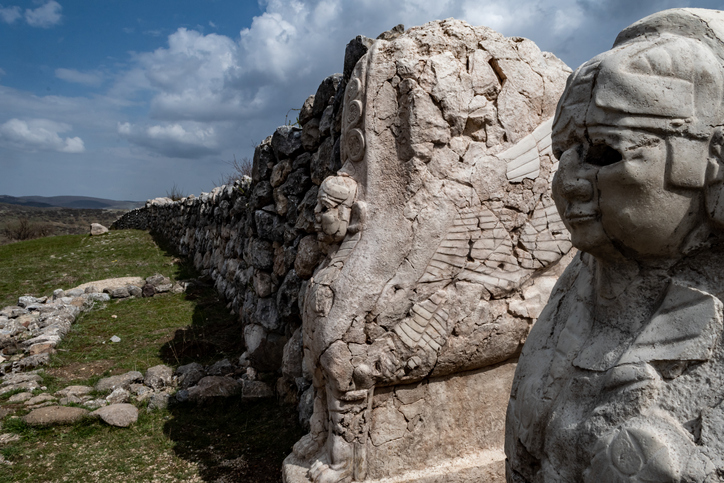
A new language has been discovered during an archeological dig at a UNESCO World Heritage Site in Boğazköy-Hattusha in Turkey, former capital of the Hittite Empire.
The Hittite Empire is regarded as one of the world’s oldest known civilizations and boasts the world’s oldest known Indo-European language. Excavations at this particular site have spanned more than 100 years, and according to a news report by the University of Würzburg, the archeological work directed by the German Archaeological Institute has previously found “almost 30,000 clay tablets with cuneiform writing.”
The new language discovered among the tablets has been labelled “largely incomprehensible” according to the release, but displays features of a “cultic ritual text” and is already being analyzed for greater understanding. It is the fourth language of its kind to be found at the site.
Previous archeological researchers have discovered cuneiform texts with passages in Luwian, Palaic, and Hattic languages. According to the university, the first two languages are close relatives of Hittite, while the third language significantly differs. The newest language was found where the Palaic language was spoken, but researchers believe it shares “more features” with Luwian. The connection between the languages will be studied by researchers.
The tablets have helped researchers understand the civilization’s history, society, economy, and religious traditions.
Daniel Schwemer, chair of Ancient Near Eastern Studies at the University of Würzburg said “The Hittites were uniquely interested in recording rituals in foreign languages,”, suggesting that the find wasn’t entirely unexpected.
The university explained that the type of ritual texts discovered at the site were usually written by the scribes of Hittite rulers, reflecting various Bronze Age traditions and languages.
The University of Chicago’s Institute for the Study of Ancient Cultures, keeps the Chicago Hittite Dictionary – a “comprehensive, bilingual Hittite-English dictionary,” and maintains that studying Hittite languages can help illustrate the beginnings of Western civilization.
The discovery of the new language will be studied in context to previous finds, where researchers will look for patterns and continue to build a picture of early civilizations.







